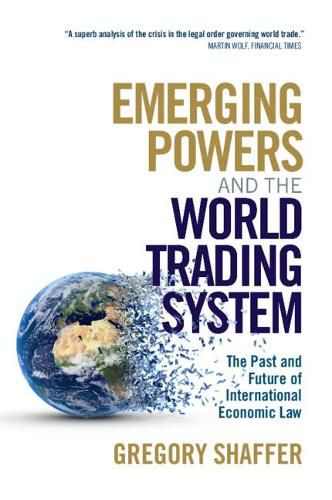Readings Newsletter
Become a Readings Member to make your shopping experience even easier.
Sign in or sign up for free!
You’re not far away from qualifying for FREE standard shipping within Australia
You’ve qualified for FREE standard shipping within Australia
The cart is loading…






Victorious after World War II and the Cold War, the United States and its allies largely wrote the rules for international trade and investment. Yet, by 2020, it was the United States that became the great disrupter - disenchanted with the rules’ constraints. Paradoxically, China, India, Brazil, and other emerging economies became stakeholders in and, at times, defenders of economic globalization and the rules regulating it. Emerging Powers and the World Trading System explains how this came to be and addresses the micropolitics of trade law - what has been developing under the surface of the business of trade through the practice of law, which has broad macro implications. This book provides a necessary complement to political and economic accounts for understanding why, at a time of hegemonic transition where economic security and geopolitics assume greater roles, the United States challenged, and emerging powers became defenders, of the legal order that the United States created.
$9.00 standard shipping within Australia
FREE standard shipping within Australia for orders over $100.00
Express & International shipping calculated at checkout
Victorious after World War II and the Cold War, the United States and its allies largely wrote the rules for international trade and investment. Yet, by 2020, it was the United States that became the great disrupter - disenchanted with the rules’ constraints. Paradoxically, China, India, Brazil, and other emerging economies became stakeholders in and, at times, defenders of economic globalization and the rules regulating it. Emerging Powers and the World Trading System explains how this came to be and addresses the micropolitics of trade law - what has been developing under the surface of the business of trade through the practice of law, which has broad macro implications. This book provides a necessary complement to political and economic accounts for understanding why, at a time of hegemonic transition where economic security and geopolitics assume greater roles, the United States challenged, and emerging powers became defenders, of the legal order that the United States created.